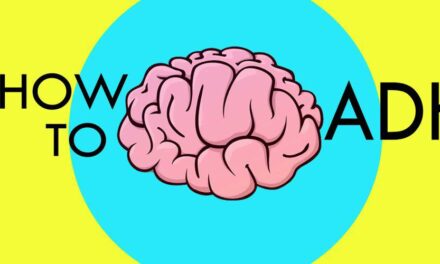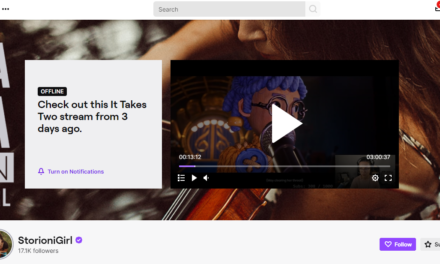
SEPTEMBER 23, 2022
In Friday 5s: It’s time to cover your butt and protect your content assets. Google says adios to surveys, and Meta wants you to endorse other creators. Plus, advice so your online courses don’t suck.
5 things to do
Get it in writing.
Every content entrepreneur needs to create contracts to protect their content rights, brand identity, and business deals, says Sharon Toerek, founder of Toerek Law.
Among the lessons she shares in The Content Entrepreneur’s Essential Guide to Contracts:
1. Know the intellectual property triangle: Copyright or use rights refer to your ability to share, duplicate, display, sell, and profit from the content created. The creator presumes to own the copyright. In general, only they can give away or license their content to a third party.
Trademarks protect the brand associated with the business. Many deals may include the right to use the brand (yours or another company’s) along with the content.
Licensing lets the creator give permission to use a piece of copyrighted or trademarked content to a third party. It could be for a designed time or a particular purpose.
2. Consider non-disclosure agreements: When you begin conversations with brands about a potential partnership, an NDA requires both parties to keep the conversation confidential so they can share ideas in the business development phase that may not be public. Make it clear who owns the work discussed and created in this phase.
3. Understand influencer deals are advertising: Influencer agreements detail the engagement of a content entrepreneur who has some status and the brand that wants to leverage that status to promote their brand, products, etc. The Federal Trade Commission considers this type of arrangement as advertising, meaning it must follow FTC ad guidelines.
4. Consider business differences between licensing and giving away the copyright: A licensing agreement allows the creator to retain the copyright and a third party to use it for a specific use or permitted timeframe. It may or may not be exclusive to that third party. When a creator gives the copyright away, ownership of the content is transferred to the third party, which then controls and profits from the content’s use.
5. Sign contracts with people who do work for you: If you work with other content creators, such as freelance writers, photographers, etc., put the arrangement in writing. Include a description of all work, a timeline for completion, compensation, etc. Make sure to detail who will own the intellectual property. In most cases, you’ll want to make sure the freelancer transfers the rights to your business. If you don’t agree to it in writing, the original creator retains ownership rights.
Do a deeper dive into content business contracts in Sharon’s free class: The Content Entrepreneur’s Essential Guide to Contracts.
5 things at the tilt 
- Learn about the three-legged publishing strategy that will take your business to the next level. [Content Inc. podcast]
- Joe and Robert talk about how Spotify trolls Amazon’s earhole strategy. [This Old Marketing podcast]
- Have you checked out The Tilt’s merch store recently? We even have CEX shirts!
- Nominate your favorite content creator to speak at Creator Economy Expo in May of 2023. (There may be prizes involved!)
- ICYMI: Free Small Business Resources To Help Content Creators Be Successful Entrepreneurs
5 things to know
Money
-
Split down: Twitch used to take 30% and give streamers 70% of premium subscription fees. A year ago, it went to 50/50 for new creators. Now it wants to change the contracts for older streamers to the same split. (tubefilter)
Tilt Take: When the bottom line isn’t great, big tech platforms often look to cut from the creators first. -
We love Ryan Reynolds: The star’s new nonprofit The Creative Leader partnered with Creatively to give away $5K monthly grants to up-and-coming creative professionals. Winners also get access to an artist-in-residency program and free creative tool subscriptions. (Fast Company)
Tilt Take: Ryan’s organization was created to give a boost to underrepresented communities in creator fields. That’s using star power for the greater good.
Audiences
-
Endorse me: Meta introduced a new creator endorsement feature. Managers of creator pages can now use direct notification to recommend their fans follow another creator. (Social Media Today)
Tilt Take: If it’s not overused so that the volume of notifications irritates your fans, it could be a helpful collaboration tool to grow audiences.
Tech and Tools
-
Survey doesn’t say: Google will shut down Google Surveys and Surveys 360 on Nov. 1. Users have until December to download historical data. (Search Engine Journal)
Tilt Take: We still think you should survey your audience. It’s a great listening tool, even if Google doesn’t want to support it.
And Finally
-
Big bust: Substack didn’t see a big business impact of contracting with TikTok megastars like Larray and Lil Huddy. One employee said the creators published the exclusive content in exchange for big dollars as long as the contract existed. Then, they left. (Insider)
Tilt Take: Finding the right collaborative match is essential. We’re not sure how many of these creators’ TikTok audiences would be eager to go off the platform to see them, let alone subscribe to Patreon.
5 things to read, watch, or hear
- 95% of online courses suck, says creator Jordan Godbey. Don’t make these big mistakes when creating your course.
- Don’t get into a link scheme, and you won’t face the wrath of Google. (h/t Rohan Ayyar)
- Billy Oppenheimer reveals 11 takeaways from growing the Daily Stoic newsletter audience from 50K to 500K.
- An essayist contemplates the art and business of creation in the creator economy.
- Think like a brand with this behind-the-scenes advice to help attract sponsorships and other business deals. (Free registration required.)
the tilt team
Your team for this issue: Joe Pulizzi, Pam Pulizzi, Ann Gynn, Laura Kozak, Marc Maxhimer, and Dave Anthony.
Get more of the Full Tilt stories on TheTilt.com.
Know a content creator who’s going full tilt? DM us or email [email protected]
Want to advertise on The Tilt? Go here.
Or email us at [email protected]
Interested in the tools we use? Check out our Tilt Tech Stack here.
Was this email forwarded to you? Get your own sub here.
Copyright ©2022 Tilt Media LLC All rights reserved.
Update your preferences | Unsubscribe | 17040 Amber Drive, Cleveland, OH 44111





